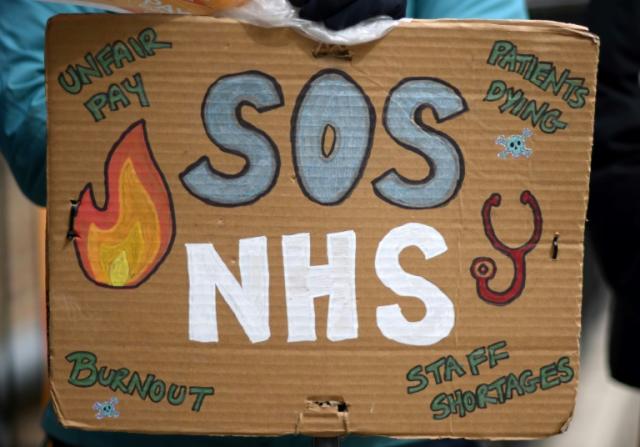
LONDON, July 1 (NNN-AGENCIES) — The National Health Service (NHS) in England will get more than 300,000 staff under a new plan announced by the government on Friday to deal with a chronic shortage of doctors and nurses.
The publicly funded NHS, which marks its 75th birthday on Wednesday, is facing an estimated workforce shortfall of 360,000 by 2037 because of an ageing population, a lack of domestically trained health workers and difficulties retaining staff.
The government’s long-term workforce plan would include reducing the time doctors spend in medical school and training more homegrown staff, to improve staffing levels that are below the European average.
“Today we’re announcing the most ambitious transformation in the way that we staff the NHS, in its history,” Prime Minister Rishi Sunak told a press conference.
“This is a 15-year plan to deliver the biggest ever expansion in the number of doctors and nurses that we train… and a plan that not only eases the pressures today, but protects this precious national institution for the long term,” he said.
He accused previous governments of having “ducked the challenge for decades”.
NHS England currently has 112,000 vacancies as it struggles to fill the large number of workers leaving the service over issues such as pay and also tougher visa rules after Brexit.
The NHS has seen unprecedented strikes over the last year, with staff complaining of being underpaid and overworked as they struggle to clear the backlog created during coronavirus lockdowns.
The government says the plan’s main goals are to train and retain more staff and reform working practices.
They hope to add an extra 60,000 doctors, 170,000 nurses and 71,000 health professionals by 2037.
In order to retain more staff, the government is planning to change pension schemes and give staff more flexibility in their careers.
It will also encourage the use of innovative technologies like AI and “virtual wards” to make better use of NHS resources.
The government asked health bosses to come up with the proposals, which were welcomed by NHS England chief executive Amanda Pritchard as a “historic moment”.
Referring to next week’s landmark, Pritchard said the “publication of this ambitious and bold NHS plan feels an even more significant moment than that anniversary”.
“This is a once-in-a-generation opportunity to improve patient care by putting staffing on a sustainable footing,” she said.
“We are going to do the boldest set of changes for workforce ever in the history of the NHS — we will increase the number of homegrown doctors, nurses and other staff.”
The plan will also encourage people trained in other backgrounds to switch to the health profession through apprenticeships.
Healthcare is a devolved sector in the UK, with the governments in Scotland, Wales and Northern Ireland setting policy there. The UK government oversees health in England. — NNN-AGENCIES










